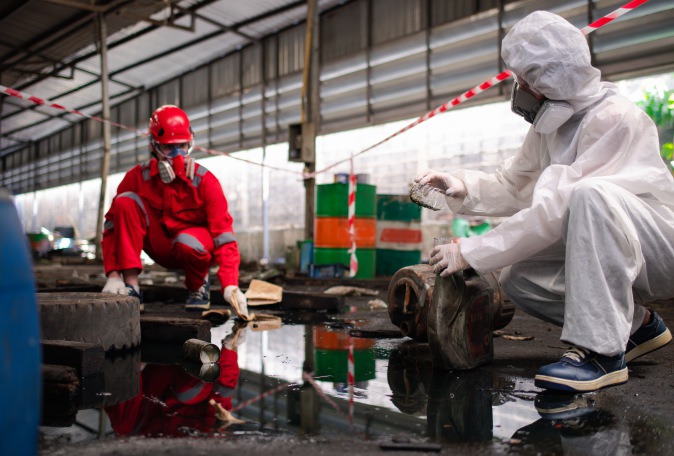Regulations: storage and clean-up of dangerous or potential pollutants
In the world of property ownership, whether as an owner, lessee, or tenant, one cannot afford to overlook the importance of environmental regulations and legislation concerning the storage and clean-up of dangerous or flammable goods. Environmental incidents can lead to dire consequences, both financially and legally. This article aims to shed light on the environmental impact risks that site owners and operators face, and the regulations they must comply with to mitigate these risks.
Environmental Impact Risks for Site Owners
The storage of fuels, chemicals, and other potentially harmful pollutants comes with a distinct set of risks that can have far-reaching consequences. Site owners need to be aware of the potential hazards to adequately protect themselves:
Legal Obligations Under NEMA Legislation
Site owners must be well-versed in the legal framework governing environmental protection. The National Environmental Management Act 107 of 1998 (NEMA) in Section 28 outlines crucial duties and responsibilities:
Adherence to SANS Regulations
To ensure compliance with best practices and insurance policy conditions and warranties, site owners must adhere to the South African National Standards (SANS) regulations. These regulations stipulate specific requirements for the storage of dangerous goods, which can vary based on the type of storage and the commodities involved. Compliance with SANS regulations are essential not only for regulatory compliance but also to protect against insurance-related issues.
In conclusion, the storage and clean-up of dangerous or flammable goods entail significant environmental impact risks for site owners. Compliance with NEMA legislation, adherence to SANS regulations, and the acquisition of appropriate insurance coverage are all crucial steps in safeguarding against the financial and legal repercussions of environmental incidents. Site owners must prioritise environmental responsibility to protect not only their assets, but also the communities and ecosystems surrounding their properties.
De Wet De Villiers Brokers has partnered with Envirosure Underwriting Managers FSP No. 38594 . Envirosure is a niche underwriting agency and a South African leader in environmental impairment cover. Their comprehensive solutions fully cover the cost incurred during clean-up and rehabilitation in the event of an environmental incident.
You can view the Envirosure solutions here:
Envirosure Site Clean-Up On-Site Brochure
Envirosure Site Clean-Up Underground Brochure
If you have any questions relating to this matter, please get in touch with us at info@dwdv.insure or call us on 014 592-1077.


